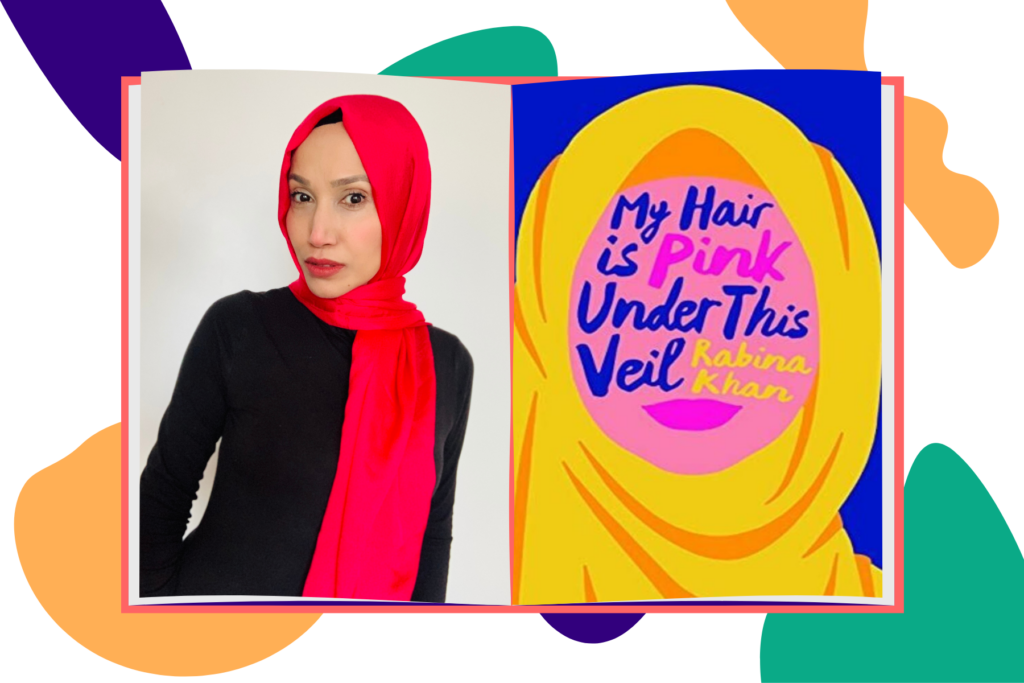
There’s no sugar-coating it. You’re brown and you’re new and everything that could possibly go wrong for you as a result basically does. You put a veil on your head and everything that could go wrong for you as a result simply does. You get called names, you get spit on, you get bullied and you become the epitome of a controversy of controversies. But that’s just the thing: It’s not your fault no matter how much the villains in your life want you to think it is. You’re brown and that’s okay. You’re new and that’s just fine. You’re wearing a veil or any other kind of head-covering and that’s just you, being you!
Bangladeshi-British Author, Rabina Khan, takes us on a journey through her life of such experiences, everything from her upbringing, the prejudices and racism that she and her family have faced growing up to, SPOILER ALERT, the confident woman she has become, as a result, today! Discover how these experiences have affected her, discover how much you can actually relate to them and discover how inspired you will become as a result of having read “My Hair is Pink Under This Veil” by Rabina Khan. Most of all, discover how this book challenges those who cannot relate even in the slightest bit!
[Read Related: Book Review: ‘Kalyana,’ an Indo-Fijian Coming-of-Age Story, by Rajni Mala Khelawan]
In 1976, Rabina Khan immigrated with her parents and younger sibling to Kent, UK and they were the only “colored” people there at the time. Rabina faced a string of conflicts that caused an identity crisis especially considering the peer pressure to fit in. She had even taken her veil or hijab off at times due to these social pressures:
We were fish thrown on a shore, wriggling hopelessly, trying to get back to the sea
Eventually, she discovered that it was better to try to understand why the bullies bullied her than try to understand why she was being bullied: Her culture was just as alien to the British “white” people as theirs was to her. She found small ways to tackle these issues:
The girls in my class came in different shapes and sizes, tall and short, skinny and plump. They discovered, as I helped them dress, that the sari fits every contour and gives the wearer elegance and femininity.
Life following 9/11 for Muslims and “brown” people, hijab bans, worldwide debates surrounding anti-hijabs and anti-veil societies, culture clash, South Asian taboo, you name it, it’s in this book! Every topic about prejudice, racism, cultural norms that you could possibly think of and relate to has been mentioned through the eyes of Rabina Khan. “My Hair is Pink Under This Veil” is a testament to the brutal truth of what it is like growing up “brown” in a “non-brown” society; it highlights the plummeting downfalls and the excruciating uphill climbs.
[Read Related: Book Review: ‘Unfair’ by Rasil Kaur Ahuja Explains Colorism to Children Through Storytelling]
How did these experiences shape the person Rabina is today? How did she lift herself up out of the pit? How did she drag herself up those mountains? What steps did she take that can help someone in the same position as she is? What current events did she draw awareness to and how? There is so much to learn from “My Hair is Pink Under This Veil.”
Rabina Khan is a humble soul. I met her years ago as she was one of the first Bangladeshi/Bengali authors to be published in a “non-brown” society. She inspired me and we met because I, myself, was a published author and sought her wisdom on writing advice for future projects. She was so kind and warm, and still is! Find yourself in learning how Rabina found herself in “My Hair is Pink Under This Veil.”
In an interview, she said, “We should be able to support each other in terms of what we are looking for in the future as well.”
You can keep up with Rabina Khan’s work on their Instagram and purchase a copy of “My Hair is Pink Under This Veil” here!




